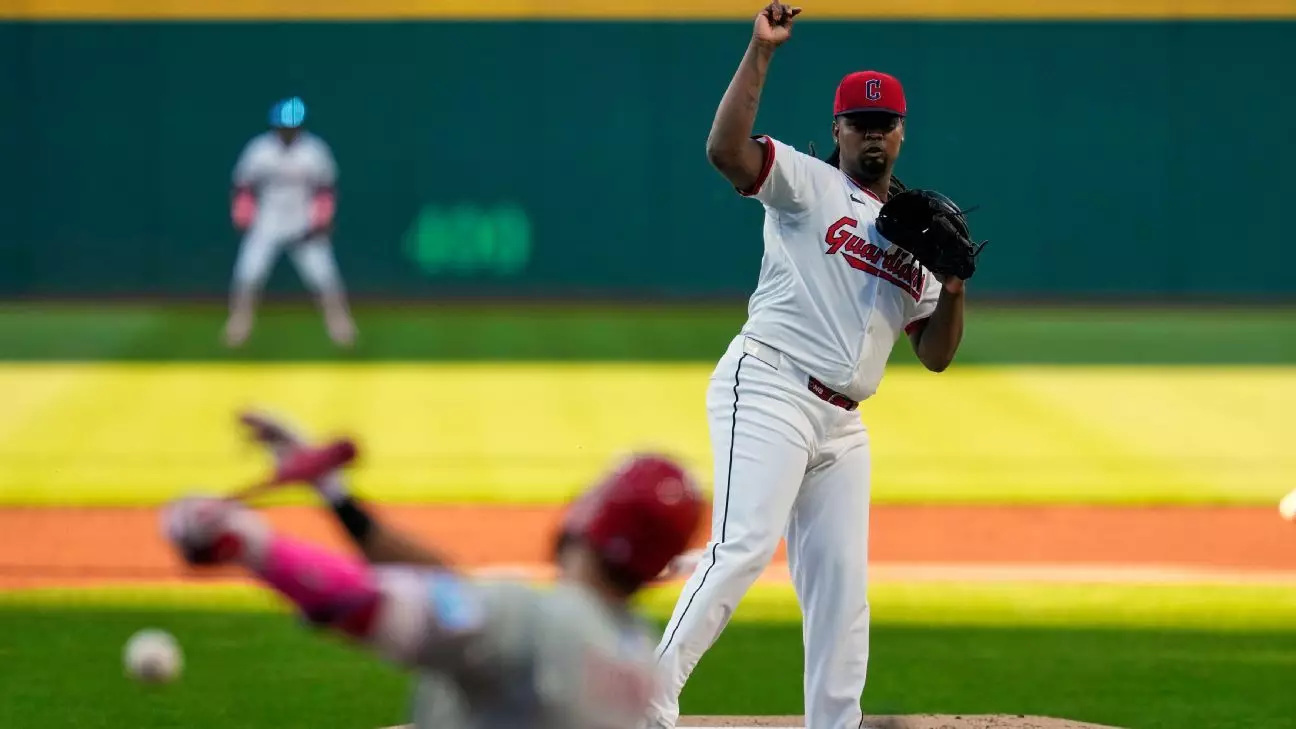The recent investigation into Cleveland Guardians pitcher Luis Ortiz epitomizes the growing vulnerability of Major League Baseball’s integrity in a world increasingly influenced by gambling and betting industries. While MLB strives to maintain a clean reputation, the resurfacing fears of corruption threaten to undermine public confidence in the sport’s fairness. Ortiz’s case, shrouded in secrecy and speculation, feeds into a narrative that even promising players are not immune to the temptations and dangers of gambling infringements. The league’s response—placing Ortiz on non-disciplinary paid leave—may be seen as a cautious step, but it highlights broader systemic issues that demand more rigorous preventive measures and a firm stance against any semblance of misconduct.
This situation forces us to confront uncomfortable questions about how sports organizations regulate their athletes and their relationship with illicit betting networks. In an era where microbets and real-time gambling are deeply integrated into sports consumption, the boundary between entertainment and corruption blurs alarmingly. The fact that Ortiz’s pitches attracted unusual betting activity, flagged by a dedicated integrity firm, reveals a disturbing trend: even seemingly minor moments of the game, like first pitches, are becoming battlegrounds for gambling manipulation. Such vulnerabilities threaten to erode the very fabric of the game’s credibility, turning it into a pawn in a high-stakes betting landscape that operates largely unchecked.
The Perils of Neglecting Vigilance in Sports Integrity
MLB’s history with gambling-related scandals is as fraught as it is cautionary. The lifetime ban handed to Tucupita Marcano, along with suspensions of other players, serves as a stark reminder that the league takes this issue seriously—at least in words. Yet, the difference now lies in the substance and scope: present investigations aren’t just about a handful of players gambling on games, but potentially about systemic vulnerabilities exploited through microbets and sophisticated betting patterns. Ortiz’s case, coming amidst ongoing investigations and high-profile firing of figures like umpire Pat Hoberg, underscores a need for comprehensive overhaul.
The league’s cautious approach—placing Ortiz on leave and extending his investigation—demonstrates an understanding of the gravity involved. However, one cannot ignore the fact that this incident might be just the tip of the iceberg. As gambling becomes more intertwined with the sport’s fabric, any hint of corruption, even in isolated cases, damages the league’s reputation. Trust, once broken, is arduous to rebuild. MLB’s historical tardiness in addressing gambling concerns signals a need for a proactive stance, not reactive damage control when scandals surface. Ignoring these issues only emboldens those with vested interests in manipulating outcomes or exploiting loopholes.
Implications Beyond the Diamond
This incident raises critical questions about the wider implications of gambling on sports and what it reveals about priorities within professional leagues. MLB’s cautious handling might seem responsible, but it could also be perceived as a tacit acceptance that such threats are manageable rather than urgent threats to the very integrity of baseball. In a broader societal context, the erosion of trust is a dangerous trend—not just for fans and bettors, but for the players, officials, and stakeholders relying on the league’s credibility.
Furthermore, this incident spotlights the need for more transparency and accountability. The league and its teams should not merely react to scandals but actively develop comprehensive integrity programs that limit opportunities for manipulation. From stricter regulations on betting access, education for players, to rigorous monitoring of betting patterns in real-time, action must be tangible. Only then can baseball maintain its honor and prevent the corrosive influence of illegal gambling from contaminating its legacy.
While Ortiz’s situation is dwarfed by the broader issues of corruption, it serves as a stark warning. The game must decide whether it will be passive and reactive or embrace a more accountable stance—transforming its approach in a way that preserves trust in the sport’s sanctity. As long as betting continues to seep into the sport, the risk of losing public faith remains ominously high, threatening to turn beloved baseball into a mere pawn in the global gambling economy. The league’s response now will determine whether it can safeguard its integrity or become another fallen icon in a world obsessed with betting profits.



Leave a Reply